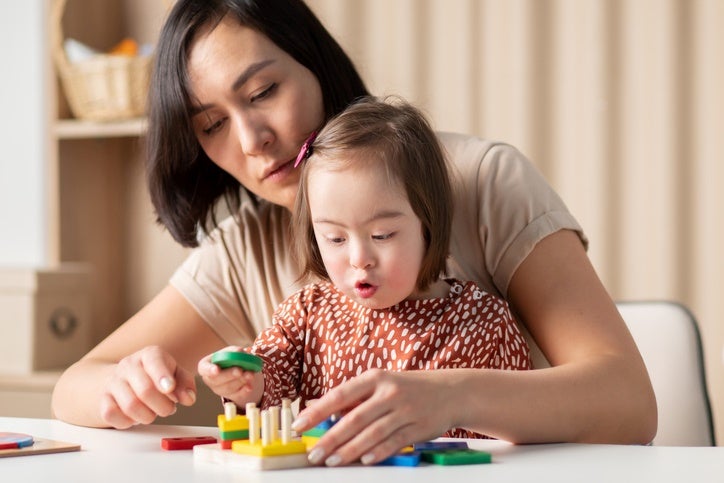The Importance of Motor Skills in Child Development

The Importance of Motor Skills in Child Development
Motor skills play a crucial role in a child’s ability to explore their environment, perform daily tasks, and achieve developmental milestones. While milestones like speech and problem-solving often take the spotlight, mastering motor skills creates the foundation for physical, cognitive, and social growth in children. Each movement contributes to their overall development, whether figuring out how to grasp a toy or learning to jump. This guide will explore motor skills, why they are important, and how parents can support their children’s motor skill development.

What Are Fine Motor Skills in Child Development?
Motor skills refer to the abilities we use to control and coordinate the movements of our bodies. Fine motor skills involve the smaller muscles in our hands, fingers, and wrists. Mastering these skills is essential for tasks like handwriting, drawing, and self-care activities, particularly in early years and preschool development. The importance of fine motor skills for preschoolers is paramount because they enable tasks that require precision, such as:
- Holding a pencil
- Tying shoelaces
- Using utensils to eat
- Manipulating small objects like buttons or zippers
What Are Gross Motor Skills in Child Development?
Gross motor skills involve the larger muscle groups in our arms, legs, back, and torso. The importance of gross motor skills includes boosting participation in sports, enhancing mobility, and increasing overall physical health. These skills govern activities like:
- Walking
- Running
- Jumping
- Climbing stairs
- Balancing and coordination
The Importance of Motor Skills in Early Years
The importance of fine motor skills in early years and gross motor skills for overall physical and cognitive development cannot be overstated. Some of the most significant reasons motor skills are fundamental include:
- Physical Independence: Mastering motor skills enables children to perform daily tasks on their own, like dressing and feeding themselves, which fosters confidence and independence.
- Cognitive Development: Research shows that movements such as crawling and walking are closely linked to brain development. These activities fuel cognitive skills like memory and problem-solving.
- Social Interaction: Motor skills allow children to participate in play, team sports, and other group activities, which are essential for learning how to interact with peers.
- Academic Success: Fine motor skills support handwriting, cutting with scissors, and using tools, all of which are vital in a classroom setting.
Causes of Delayed Motor Skills
Many factors can contribute to delays in a child’s motor skill development. Some common causes include:
- Genetic Conditions: Disorders like cerebral palsy or muscular dystrophy can impact coordination and movement.
- Premature Birth: Premature infants may experience developmental delays, including those related to motor skills.
- Neurological Issues: Conditions affecting the nervous system may delay motor skills or coordination.
- Environmental Factors: Limited exposure to physical activities or playtime can hinder development.
- Developmental Disorders: Autism Spectrum Disorder (ASD) and other developmental conditions may affect motor skill acquisition.
Signs of Motor Skill Delays
Recognizing the early signs of motor delays can help parents seek timely interventions. Some signs of motor skill delays include:
- Difficulty holding small objects or using tools like crayons and spoons
- Poor hand-eye coordination
- Problems with self-care tasks, such as dressing, buttoning, or tying laces
- Struggles with activities that require precision, such as cutting or writing
Signs of gross motor skill delays include:
- Delayed milestones like sitting, crawling, or walking
- Difficulty maintaining posture or balance
- Challenges with running, jumping, or climbing stairs
- Limited stamina during physical activities
Treatment for Delayed Motor Skill Development
If you notice signs of motor delays, seeking professional support can make a significant difference. Daisy Kids Care can help find the appropriate therapy for your child. Several types of therapies and approaches are available:
- Occupational Therapy: Occupational therapists help children improve fine motor skills through targeted activities and exercises, such as drawing, grasping objects, or practicing hand movements needed for self-care tasks.
- Physical Therapy: Physical therapists work on strengthening the large muscle groups and improving overall coordination and mobility. This may include activities like balancing exercises, obstacle courses, or stretching routines.
- Speech Therapy: If oral-motor control is an issue, including difficulty chewing or speaking, speech therapists may help develop these motor-based functions.
- At-Home Activities: Parents can encourage motor skill development through regular, playful activities, including building with blocks to enhance fine motor skills, playing catch to improve gross motor skills, and encouraging physical activities like climbing or running.
Motor Skill Development Supportive Environment Ideas
Parents can foster motor skill growth by providing their children with a safe and engaging environment. Here are some ideas:
- Play: Encourage structured and unstructured playtime that includes age-appropriate activities such as drawing, crawling, or building.
- Toys and Tools: Use toys that improve coordination, such as puzzles for fine motor skills or balls for gross motor movement.
- Outdoor Activities: Frequent outdoor play allows children to run, climb, and explore different terrains, boosting overall physical development.
Contact Daisy Kids Care
Motor skills are the foundation of a child’s growth, influencing everything from independence and physical fitness to cognitive development and social interaction. Fine and gross motor skills enable young children to confidently perform everyday tasks and explore their world. Daisy Kids Care can help your child develop necessary motor skills. Contact us today to explore therapies that can help them thrive.
